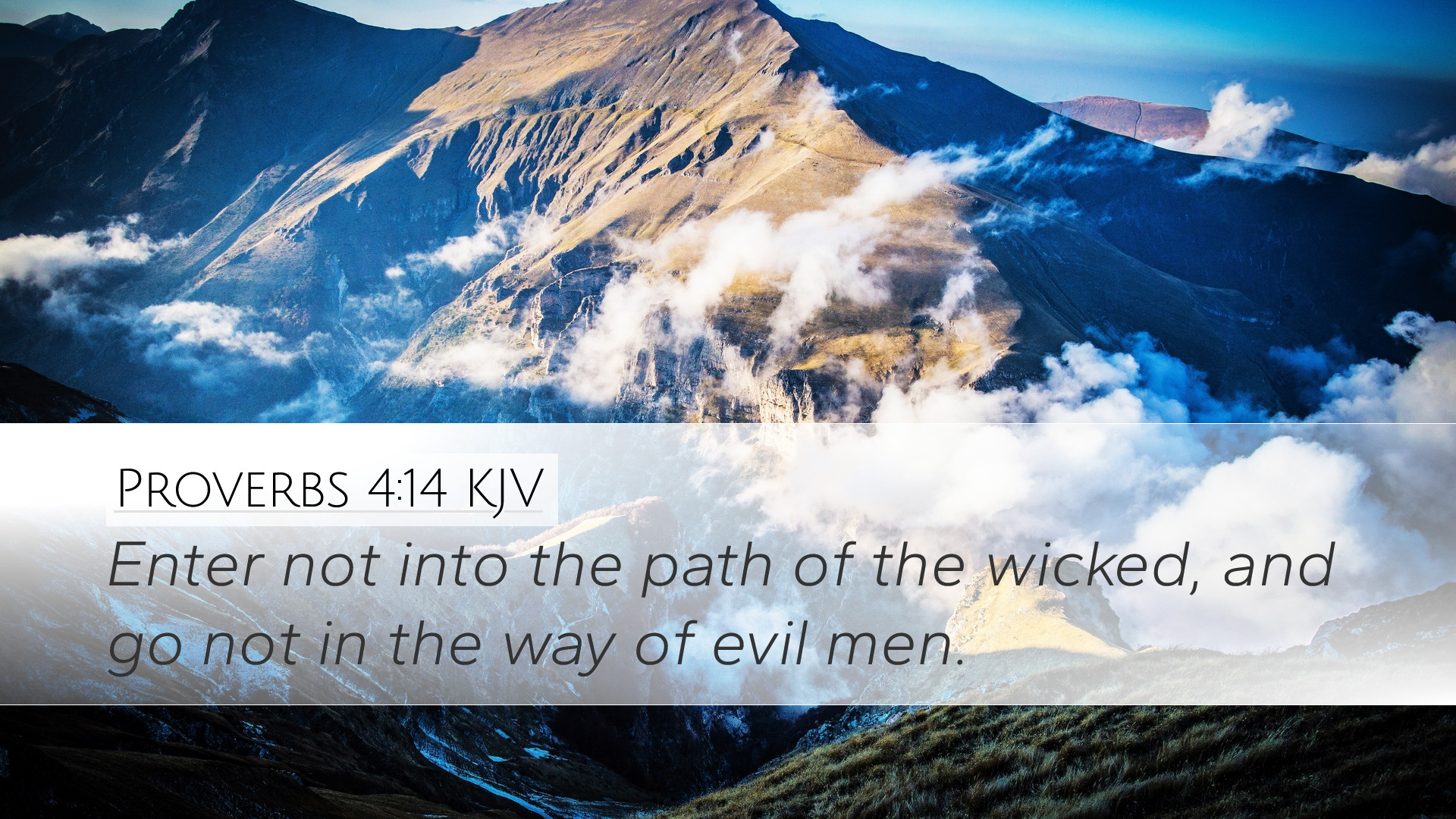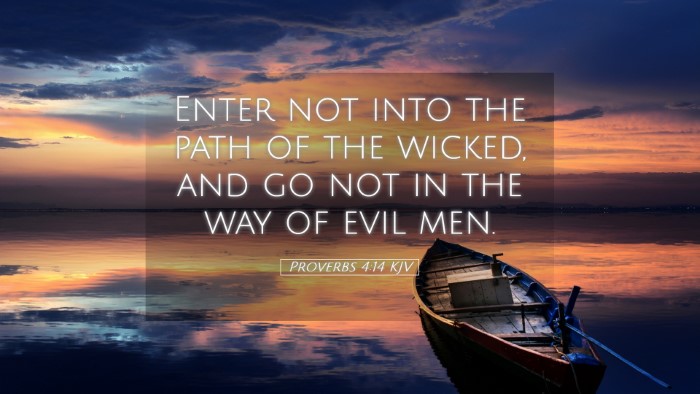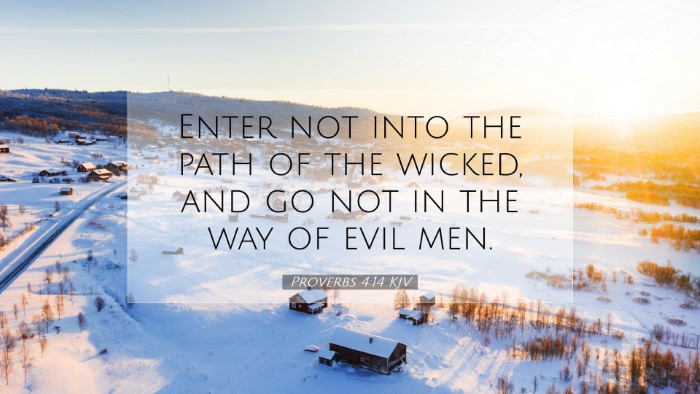Commentary on Proverbs 4:14
Text of the Verse: "Enter not into the path of the wicked, and go not in the way of evil men." (Proverbs 4:14, KJV)
Introduction
The book of Proverbs is a rich tapestry of wisdom literature, providing guidance for practical living. Proverbs 4:14 serves as a directive, cautioning readers against the dangers of associating with the wicked. This commentary synthesizes insights from several renowned public domain commentators, namely Matthew Henry, Albert Barnes, and Adam Clarke.
Exegesis of the Verse
Matthew Henry's Insights:
- Henry emphasizes the imperative nature of the command, highlighting it as both a warning and a pastoral concern. He points out that the 'path of the wicked' represents not just physical pathways but a way of thinking and living.
- He remarks on the necessity for careful discernment in a world filled with distractions and temptations. The admonition to avoid the ways of 'evil men' signifies a broader spiritual and moral avoidance.
Albert Barnes' Perspective:
- Barnes reinforces the concept of moral separation, explaining that the path of the wicked leads to destruction. He urges believers to be proactive in seeking out righteous paths.
- Further, he gives a practical application to the verse by discussing the influence of companions on one's moral and spiritual journey.
Adam Clarke's Contribution:
- Clarke elaborates on the significance of the 'path' as a metaphor for one's lifestyle and choices. He posits that entering this path implies a willingness to engage in the moral failings of others.
- He also discusses the communal aspect of sin, noting how evil can influence individuals in both overt and subtle ways.
Theological Implications
This verse holds significant theological implications regarding holiness and ethical living. The repeated emphasis on avoiding the wicked underscores a biblical theme of separation from sin. The idea that one's environment can influence moral choices is biblical; it finds resonance throughout the Scriptures, from the admonitions of Psalm 1 to the New Testament warnings against corrupt (1 Corinthians 15:33).
Applications for Pastoral Leadership
For pastors, the wisdom contained in Proverbs 4:14 is applicable when guiding congregants through life's moral dilemmas. Encouraging members to discern their associations—be it in friendships, workplaces, or media consumption—is essential.
- Encouraging Discernment: Pastors can teach on the importance of evaluating one's circle of influence in light of this verse.
- Establishing Boundaries: The call to avoid the path of the wicked calls for a practical application in establishing boundaries to protect spiritual integrity.
Insights for Students and Theologians
For students and scholars, Proverbs 4:14 invites in-depth study. Examining the historical and cultural context of the scripture can yield valuable insights into the wisdom literature’s viewpoint on ethics and morality.
- Contextual Analysis: Understanding the societal norms and challenges of ancient Israel provides a backdrop for the significance of wisdom as depicted in Proverbs.
- Comparative Study: Engaging with other texts within both the Old and New Testaments regarding wisdom and moral living can deepen one’s understanding of the text.
Conclusion
In conclusion, Proverbs 4:14 serves as a critical reminder of the importance of moral vigilance in a challenging world. The collective wisdom of Matthew Henry, Albert Barnes, and Adam Clarke enriches our understanding of this verse and urges us toward lives marked by righteousness and discernment. This passage is a clarion call to avoid the paths that lead to moral failure, thus affirming the believer's commitment to living a life that honors God.


